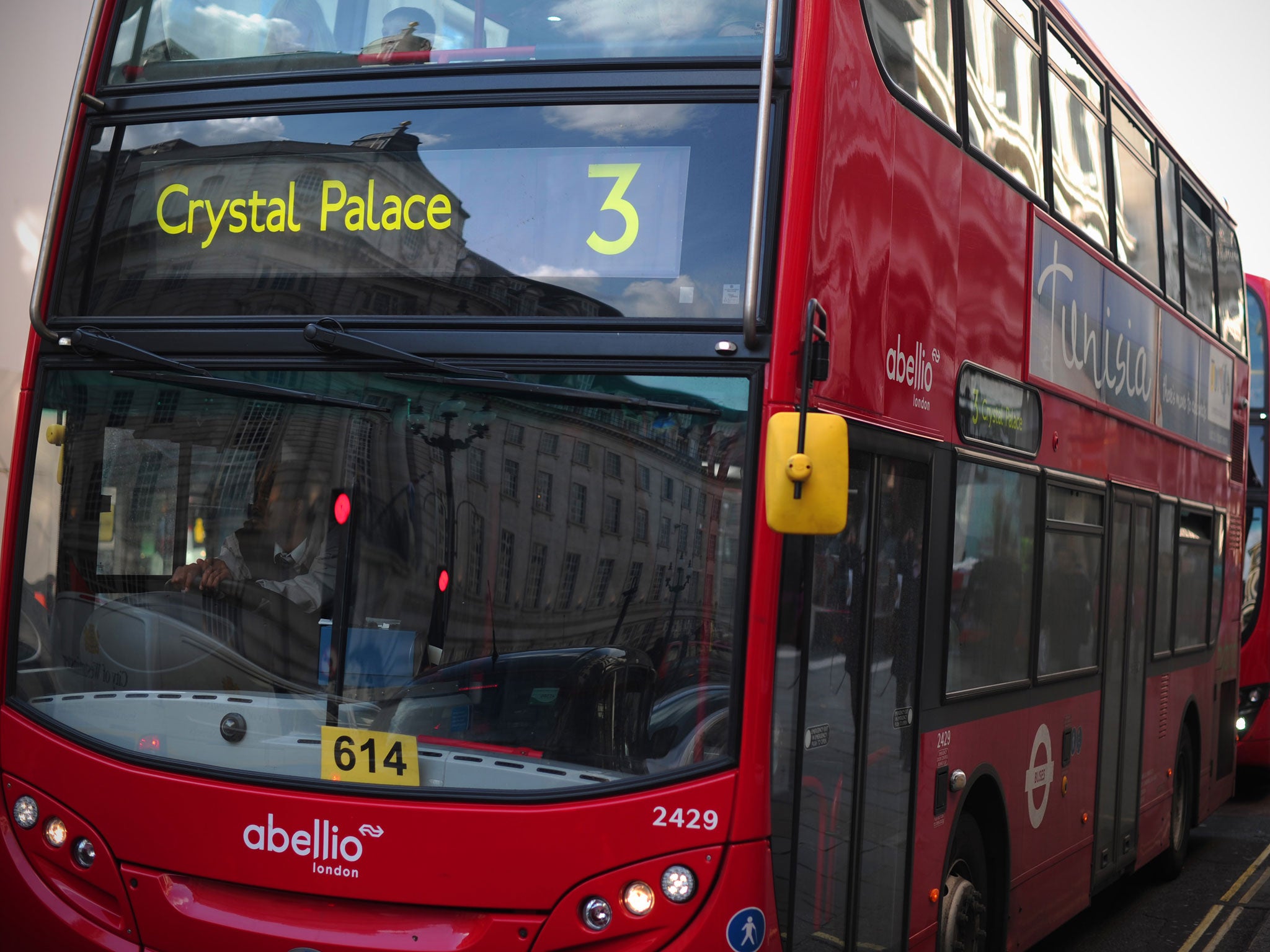London buses go cash-free
Transport for London claims move will save £24m a year

Your support helps us to tell the story
From reproductive rights to climate change to Big Tech, The Independent is on the ground when the story is developing. Whether it's investigating the financials of Elon Musk's pro-Trump PAC or producing our latest documentary, 'The A Word', which shines a light on the American women fighting for reproductive rights, we know how important it is to parse out the facts from the messaging.
At such a critical moment in US history, we need reporters on the ground. Your donation allows us to keep sending journalists to speak to both sides of the story.
The Independent is trusted by Americans across the entire political spectrum. And unlike many other quality news outlets, we choose not to lock Americans out of our reporting and analysis with paywalls. We believe quality journalism should be available to everyone, paid for by those who can afford it.
Your support makes all the difference.As of today, Londoners and tourists alike will no longer be able to pay for bus journey with coins or notes, as the capital’s bus network goes cash-free.
People are now only able pay for the bus with an Oyster card, a contactless payment card, or a prepaid or concessionary ticket as part of the new system that came into force at 04:30 BST on Sunday 6 July.
Transport for London (TfL) claims the removal of cash fares follows dwindling numbers of people using money on busses. A decade ago 25% of fares were paid for with cash, whereas this year less than 1% of journeys have been paid for this way.
As a result, the vast majority of passengers will feel no impact from the change, and TfL says the move to cashless fares will save £24 million a year, with an overall planned saving of £130 million by 2023, which it says it will use to reinvest in improving transport in the capital.
Tourists are unlikely to be affected by the changes either, as the majority use a prepaid ticket such as a Visitor Oyster, the company said.
However, TfL has introduced a number of initiatives aimed to help ease the move to cashless transactions, including the ‘One More Journey’ feature for pay-as-you-go Oyster cards, which allows passengers to go in to negative credit for one trip when their cards have run out.
Mike Weston, director of busses at TfL, said: “The way our customers pay for goods and services is evolving, so we need to ensure our ticketing evolves too.”
But TfL’s move has been criticised by the Green Party’s London Assembly Member Darren Johnson, who told the BBC: “I am very concerned that TfL are only planning 19 new Oyster ticket stops in preparation for the cashless switchover. This seems highly inadequate, especially when every ticket office across the tube network is going to be closed.
“I also have serious concerns about the impact which this sweeping change could have on vulnerable customers.”
Drivers have been issued with refreshed guidance on vulnerable passengers.
Subscribe to Independent Premium to bookmark this article
Want to bookmark your favourite articles and stories to read or reference later? Start your Independent Premium subscription today.
Join our commenting forum
Join thought-provoking conversations, follow other Independent readers and see their replies
Comments